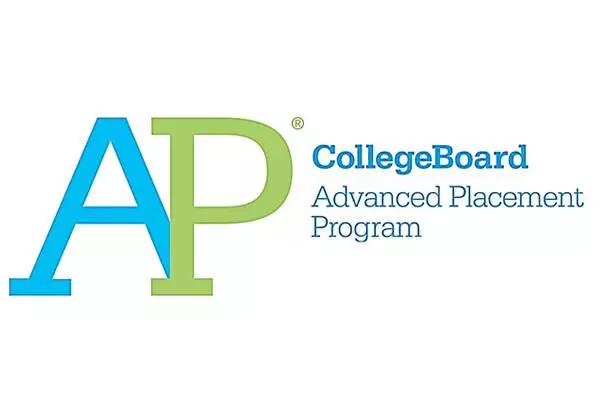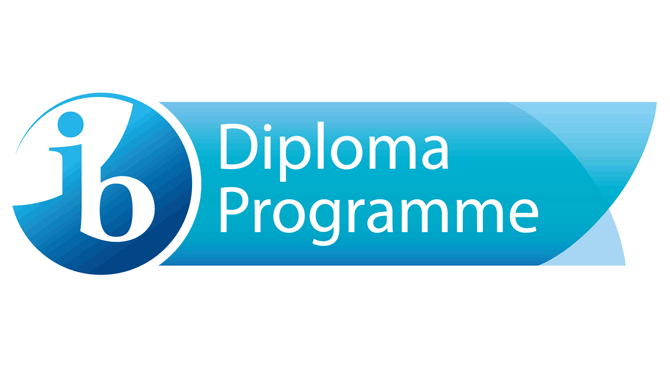Are you a high school student looking to gain exposure to a new field or potential career path, build connections, and potentially even earn academic credit (or cash)? If you internally answered “YES!” to any of the aforementioned opportunities, then keep reading to learn about internships for high school students.
Okay so, I may have gotten ahead of myself there! Before we dive into some great internships for high school students, let’s go over some of the basics.
The formal definition of an internship is “the position of a student or trainee who works in an organizations, sometimes unpaid, to gain work experience or satisfy requirements for a qualification”.
Non-formally speaking, an internship is a professional learning experience that essentially allows you to gain more knowledge and skills in a given field, all while helping you decide if that field is actually something you’d be interested in pursuing as a career.
Across the board, there are numerous benefits to getting an internship. However, here we’re focusing specifically on internships for high school students.
So, if you are indeed a high schooler (assuming you are since you read past my introductory line!) you’ll be even more pleased to learn that there are potentially even more benefits to getting an internship in high school compared to, say, a college or post-graduate internship.
Here are just a few of the many benefits of internships for high school students:
Internships for high school students are designed to be a stepping stone to teach you more about a specific field or job within that field.
The type of exposure that an internship typically offers can help you to decide if that field or job is a potentially good fit for you.
Ultimately, the goal is for you to leave feeling more prepared, exposed, and informed as you take the next step in your journey, whether that's by obtaining a college degree or diving into the workforce.
Based on the idea that internships for high school students are a great stepping stone, you’re probably wondering WHY I believe internships for high school students have even more potential benefits than just your average internship. Hear me out:
As a high school student, you don’t have as much pressure as you do in college or once you’re already graduated and looking for a job to figure out what you want to do.
This time allows you to explore your options, research internships and programs across different fields of interest, and take on opportunities without necessarily worrying about whether or not it’s relevant to your major or intended career.
As I like to say, in this case, all experience is good experience!
So, now you likely have a solid understanding of what an internship is, and what some of the benefits are of internships for high school students specifically. But where can you find these programs to apply for?
STEM
Healthcare/Medical
Art
AP vs IB: The majority of high school students preparing for college know that taking rigorous courses is one piece of the puzzle when it comes to making yourself a competitive college applicant. Data published in 2024 by NACAC confirmed that high school academic performance (aka, your grades) is the most important aspect of the college admissions process. Going even further, 73% of colleges stated that student’s grades in college prep courses (such as AP and IB courses, for example) were “considerably important”.
But let’s take a step back here. What exactly does it mean to take “rigorous courses”?
Most high schools offer several different levels of courses that students can take, which vary in terms of difficulty. Beyond your normal classes, lots of schools also offer Honors classes (one step up from your normal). One step up from Honors classes is taking you into a whole new ballgame.
Enter the room, AP and IB classes.
At some point throughout your high school years, it’s likely that you’ve heard these terms, “AP” and “IB”, thrown around or mentioned by your teachers, school counselors, or your peers.
Maybe you know a little bit about them, maybe you know nothing about them.
To give you the extremely shortened version, AP and IB courses are the most rigorous level of courses that you can take as a high school student. These programs (and their respective courses) are both viewed highly by college admissions officers, primarily because they offer students the opportunity to earn college credits by showing their proficiency in a course that is considered to be college level.
Regardless of where you stand on this spectrum in terms of what you know (or don’t know), in this post, I am going to outline everything that you need to know about both types of classes, AP (Advanced Placement) and IB (International Baccalaureate). This guide will include important information such as the basics of each type of course, key differences, which program is right for you, and so much more.

Advanced Placement classes are courses that you can take as a high school student that can potentially award you credits for college based on your score on the end-of-year AP exams.
AP classes are administered and managed by the College Board (the same organization that administers the SAT), and are offered at roughly 86% of high schools across the United States, according to a post by College Transitions.
The College Board currently offers 38 AP classes. However, most schools offer approximately half that number or less.
AP classes are offered for a wide variety of subjects, ranging from languages to history to art to the various sciences. A handful of the most popular AP exams taken by students include US Government & Politics, Calculus AB, English Language and Composition, and US History.

According to the College Board, a few of the main benefits of enrolling in AP courses (and taking their respective exams) include:
In addition to these benefits named by the College Board, one of the most obvious benefits that students derive from taking AP classes and exams is the fact that there is the possibility to earn college credit for the course you have taken the exam for, depending on the score you get.
Earning college credit for a course means that, when you get onto campus as a college student, you can essentially bypass the introductory level course for that subject. This can be helpful if you are worried about graduating on time, or if you want to be able to jump into your major-specific courses as early as possible.
While there is no age or year in high school requirement that students must meet in order to be able to take AP classes or exams, AP courses usually become a recommended component of your course load as you become an upperclassman (junior or senior).
In most schools, in order to take any given AP class, the decision needs to be approved by your school counselor, or by a teacher in the subject who can vouch for your potential to succeed in this type of advanced course.
However, there are instances in which 10th-grade students may be recommended for (and able to take) AP classes.

Taking the AP exams is necessary if you want to be able to potentially earn college credit for that course. While you are not required to take the AP exam for a course that you’ve taken, I personally think that there is no reason to not take the exam after you’ve put in all the effort with the course.
Conversely, students also have the opportunity to take AP exams in subjects even if they have not taken the corresponding AP course.
AP exams are scored on a scale of 1 - 5, where 5 is the best possible score a student can earn. The majority of schools will accept scores of a 3 or higher in some capacity, however, the more competitive and selective a school is, the higher the minimum accepted score will be.
For example, Harvard University requires students to have a score of 5 on an AP exam in order to be able to earn college credit. If you are curious to find out what scores are accepted at the schools you are interested in or applying to, click here to learn more.
AP exams are taken every year in May. In a normal year, these exams are administered either at your high school or at an exam center. However, due to COVID, this year’s exams are being administered virtually, so students are taking them at home.
To learn more about the structure of AP exams, and when and how you can sign up for them, head over to the College Board’s AP Step by Step page.
In terms of cost, as of March 2020, the cost of each AP exam was $94.

Between AP and IB classes, the IB curriculum is generally the lesser-known of the two. This makes perfect sense, considering less than 1,000 high schools across the US offer the IB diploma. However, this doesn’t mean that colleges and universities regard IB classes as being less rigorous or impressive.
When it comes to the format of IB classes and curriculum, there are a few key features that differentiate IB from AP. To start, IB is a program that is offered for students in elementary, middle, and high school. The IB Diploma Program is the specific program that is open to high school students.
The IB Diploma Program curriculum, according to their website, is made up of the DP core and six subject groups.
The DP core “aims to broaden students’ educational experience and challenge them to apply their knowledge and skills”. The three components of the DP core include:
The six subject groups offered through the DP curriculum are studies in language and literature, language acquisition, individuals and societies, sciences, mathematics, and the arts. Click here to dive further into the courses that are offered in each of these six subject groups.
There are two different difficulty levels of IB classes in the DP curriculum: the HL (higher level) and SL (standard level). Each student takes at least three, but no more than four, HL courses.
According to the IB website, a few of the main benefits that students will get out of taking part in the IB Diploma Program are:
"IB students develop strong academic, social, and emotional characteristics. They are also likely to perform well academically – often better than students on other curricula."
Similar to the benefits of taking AP classes and doing well on those exams, obtaining an IB diploma (with a solid to high score) objectively shows college admissions officers that you are academically motivated to succeed.
Another similar benefit is that your IB diploma can, depending on the school, give you college credit, which allows you to skip certain classes and go directly for the higher-level ones.
One IB-specific benefit is the fact that a significantly smaller number of students enroll in the IBDP as compared to AP courses. Therefore, this is not only a unique achievement to submit on your college applications, but it is also among one of the most esteemed.
Lastly, if you think or know that you want to attend school abroad, then you can rest easy knowing that the IB Diploma is an internationally recognized achievement.

The Diploma Program uses what they call “internal” and “external” assessments.
The internal assessments are subjective in nature and are often composed of things such as lab work in science fields, artistic performances, and oral work in languages.
By contrast, the external assessments are objective and include a variety of different types of questions to test students' knowledge across the various areas.
The scoring for the DP assessment is on a 7 to 1 range, where 7 is the highest possible score that a student can receive in any given course. Students are only awarded the IB Diploma if they exceed a combined 24 points across all of the exams, and when they have proven successful in completing requirements for all three of the DP core components.
Another thing to note is that students cannot take IB exams without having taken the corresponding course.
As of March 2020, the fee per IB exam was $119.
Key Diff #1: AP is only within the US and Canada, whereas IB is offered at schools worldwide (although a lot fewer schools in the US).
What this means: The structure and content of the IB classes have much more of an international focus than the AP courses. If you are considering going to school in a country other than the US, going the IB Diploma Program route might be a better option for you. Unfortunately, because IB is offered at much fewer schools in the US, you may be interested in it but not be able to enroll if your school doesn’t offer it.
Key Diff #2: Theoretically, you can take AP classes in any year that you’re in high school. By contrast, you need to be between the ages of 16 and 19 in order to enroll in the IB Diploma Program.
Key Diff #3: When it comes to AP courses, students can enroll in each one individually and are one year long. By contrast, with IB, students have two options: they can either enroll in individual classes, or they can opt for the full Diploma Program. Additionally, the IB Diploma Program is a two-year-long program, which takes place during your junior and senior years of high school.
What this means: The IB Diploma Program offers more flexibility in terms of having both options. However, if you do opt-in for the Diploma Program, it is clearly a longer time commitment.
Key Diff #4: Your scores for AP exams are completely separate from one another, meaning your success on one doesn’t have any impact on any of the other exams you take. Conversely, if you do not obtain enough combined points on all of your IB exams, you cannot earn your IB Diploma.
What this means: With AP classes, you can choose to take ones that you feel you will excel the most in. In comparison, when you enroll in the Diploma Program, you must take exams for all of the subjects. Also, the structure of the IB Program in terms of the scoring, in my opinion, makes it slightly more stressful than the AP exams.
Key Diff #5:The IB exams are more expensive than the AP exams.
What this means: If cost is one of those important considerations for you (as it is for many students) you will want to look into the cost breakdown for both exams. There are fee waivers available for both, so this just takes some research to see if and what you qualify for.
If your school offers both, you can definitely take a mix. However, going back to thinking about the schools you intend or hope to apply to, their competitiveness levels, and which path/type of course you feel may suit you better, I personally think that choosing one route and sticking with it is the better plan of action.
The answer to this question depends on quite a few things. Some of those things include where you are thinking about going to college, how selective the schools are that you are considering, and what your preferences are in terms of time commitment, level of pressure, and subjects of interest.
Generally, both routes are considered to be rigorous in the eyes of colleges and universities. If your school only offers one or the other, then luckily you don’t need to make this decision! If your school does offer both though, the IB Diploma Program is considered to be the better route, because it is a diploma program rather than just individual classes.
If possible, my suggestion is to do some research on the schools you are interested in before making your ultimate decision. Some schools may show a preference towards accepting more AP credits than IB, or vice versa. To find out more about the credit policy for a school for either AP or IB, you can easily do a Google search such as “X College/University IB/AP credit policy”.
If your school does not offer either AP or IB courses, you can still be a competitive applicant in the eyes of colleges and universities as long as you take the most rigorous courses that are available to you.
Additionally, if this is the case for you, you will want to consider the other pieces of your application (extracurriculars, essays, etc) and do everything you can to make those portions of your application as strong and impressive as possible.
So, this post ended up being very, very long (woops). I hope that, if you’ve made it this far, I hope it has been helpful in terms of explaining both AP and IB courses, their offerings, their differences, and more.
Now, I would be remiss to not include some additional resources at the end, if you want to learn more about either or both of these options! Happy reading!
AP
IB
A gap year is when a student takes a year off of school to pursue something that is generally not related to advancing their education through a degree. Students often choose to take them after graduating from high school but before enrolling in a higher ed institution.
However, there are also other times in which students might take a gap year, such as while in college, or after graduating from college but before enrolling in a master’s program or starting a full-time job.
In this post, I highlight everything you need to know about taking a gap year, from what goes down during it, to pros and cons, to common questions, and even a mini-interview with someone who is currently on one!
Also, read until the end to hear a little bit about my own thoughts on gap years, and to get more information on additional gap year-related reading.

There are lots of possibilities for things you can do to get the most out of taking a gap year.
A few of the most common activities that students choose to take part in include independent or structured traveling, volunteering, adventure activities, and obtaining work experience.
There are several reasons why a student might choose to take a gap year at any given time.
One popular reason students cite for taking a gap year from their education is to be able to gain unique life experiences. This could be through backpacking across a continent, performing service or volunteer work with an organization, learning a new language, or a myriad of other experiences.
With these types of life experiences, of course, comes learning about new cultures, meeting new people, and gaining life skills that can be helpful for future success.
Another common reason for taking a gap year is that it can be a great opportunity for students to gain work experience in the field they are interested in pursuing. This could be through a local apprenticeship, an internship abroad, or anything in between.
Students may also choose to take one for reasons other than personal and professional development; taking time off between high school and college to work a full-time job can be a viable option to earn some cash to help you out financially in terms of paying for your education.

Taking a gap year has proven to have positive effects on students’ development, academic performance and motivation, and maturity and independence.
In fact, according to the 2020 Gap Year Association survey of nearly 1,800 gap year participants, students indicated that the top three impacts of being in a program included:
A few additional pros include:
Another major benefit of taking a gap year is that it can allow you to recover from academic burnout, open you up creatively, and leave you feeling more motivated to get on campus (or return to campus) and hit the ground running.
Federal data from 2017 shows that at least ⅓ of college students choose a major and then change it at least once within three years.
What does this mean?
Well, if you’re someone who is perhaps indecisive about which major or career you want to pursue, then taking a gap year to get some work experience could be a great way to help reduce the likelihood of changing majors and running into problems with having to do extra semesters.
There are many pros to taking a gap year, as I have pointed out above. But, I’d be remiss to write a fully informative post on them without mentioning the cons.
I definitely think that, in order to be successful in taking a gap year and assimilating into an academic environment, you have to really have the motivation to do so. I know plenty of people who would take a gap year and never want to go back to school! You have to be the type of person who wouldn’t lose momentum after taking some time off.
A potential con of taking a gap year is that, if you don’t plan it out correctly, you could potentially end up wasting your time. The last thing you want is to take a gap year and end up not doing anything with it.
While this is certainly not always the case, taking a gap year has the potential to be an expensive endeavor. If you choose to go down the route of going with an organized program, or, if you don’t plan out your travels or endeavors in enough detail, you can easily end up spending more money than you originally planned. Watch out for this!

Q: If I want to take a gap year between high school and college, how does that impact the college admissions process?
A: Most schools will accept you and then give you the opportunity to defer your admission to the following year.
Because of this, and because it is much easier to go through the college admissions process as a senior in high school than having to do it during your gap year, most school counselors and higher ed admissions officers will encourage students who are planning on taking a gap year to apply for college before going on the gap year.
If you get accepted into a college or university and want to defer your admission, you usually have to send a letter to the admissions office discussing your request to defer admission and outlining what you plan to do during the gap year.
Q: Can I still be eligible for financial aid/scholarships if I take a gap year?
A: Yes! If you fill out the FAFSA and then decide to take a gap year, all you have to do is fill it out again the following year when you do get on campus. In terms of scholarships, some scholarships offered by the colleges and universities themselves can be deferred along with admission private scholarships, however, this definitely varies.
Many private scholarships have rules such as “student must be currently enrolled or planning to enroll within X months” - if this is the case, then if you do win a private scholarship, you can save it for when you go back to school and start paying off your tuition.
Q: What do college admissions committees think of gap years?
A: The phenomenon of taking productive gap years is becoming increasingly more popular nowadays. Because of this, you shouldn’t worry too much about a college admissions office frowning on your decision to take a gap year. In fact, lots of top schools encourage gap years, and some even have specific programs for students interested in taking them.

Let's be real. I can do all the research, write a whole post on everything you need to know about taking a gap year, and even give you my own thoughts and opinions on taking one.
However, I truly think that the most helpful perspective one can get when covering this topic is the perspective of someone who is actually currently on a gap year herself.
So, I briefly interviewed my friend Jess. She lives in England and graduated from high school last year. Here's what she had to say on the topic of:
When she decided she wanted to take a gap year...
"Probably when I was 14, but I definitively decided around 16. In the UK, you take your main exams at 16 and 18, so if you don’t want to go straight from high school to college, or if you don’t know exactly what you want to do, around 16 is the time that you would generally start to solidify the decision."
Why she decided to take one...
"You don’t want to end up with a degree that is something you don’t actually want to go into. Your education is a big investment of both time and money, so you want to make sure that it’s what you want to do.
For me, the area I wanted to study last year is not at all what I want to study now. A lot has changed, so I’m happy that I’ve had the opportunity to have a shift of perspective and take a step back and think about what I actually enjoy and want to do.
Also, sometimes you need to have time off to be able to take a step back and give yourself a break. I think it's important to have time to recharge because your last two years of high school can be really intense."
What she's been up to during her gap year...
"The pandemic has obviously made taking a gap year in 2020-2021 a lot different than what it would've been like if I had taken it during a "normal" year. However, I have still had the opportunity to travel, go on a service trip, and hopefully get some more fun stuff in over the summer before starting at university in September!"
What ideas she has for making a gap year productive...
"Traveling and backpacking-type trips are definitely popular. You can also do more volunteer/service work projects, for either a few months or a whole year.
Ski seasons and summer seasons are good options as well because they're really fun and you get paid, so you can make money instead of spending it.
Au pairing, which is like nannying, can also be a unique option and opportunity to get abroad experience while also getting paid."
Advice she has for students who are thinking about taking a gap year...
"I definitely recommend a gap year for anyone who is thinking about it. More than anything, it's a good opportunity to work on adjusting to being around new people in a new environment, which is something that you would experience when first getting to college anyways.
A gap year can also be a good prep stage for helping you develop socially. If you’re not sure what subject you want to study, this can be a good time to help you work it out before you’re in your degree.
Also, it's a great life experience in general. Having been able to get work experience, travel, and volunteer has definitely helped to create a less intense and stressful shift from high school to college."
Other things students should know about taking a gap year...
"Gap years can be expensive, but they don’t have to be. It can be inexpensive and accessible if you go about it the right way, travel to the right places, and get the right type of work experience. Don’t be put off by the fact that some programs out there can be expensive.
Also, lots of people say that they will do a gap year after graduating from college, but it doesn’t always work out. So, if you can do one between high school and college, I recommend it!

When I was in high school, the idea of taking a gap year had honestly not even crossed my mind. I didn’t know anyone who was doing anything similar, so I never considered it. It was only when I got to college that I met other students (not many, though) that had taken gap years in between high school and college.
Having friends in the UK, Australia, and other parts of the world, I have learned from them over the years that in countries other than the US, taking a gap year is quite common.
If I had the chance to rewind on my high school/college experience, I personally would definitely consider taking a gap year before starting college. As it has done for lots of students, I think it would have been a great way to help me build up life skills, confidence, and independence before going back and settling into academics.
In general, I do think that our society tends to put too much stress and emphasis on students going through the motions of graduating high school, moving on to the next step of education, and then graduating and going out into the world to get jobs.
From my own research, I know that the number of students taking gap years is on an upward trend, which I think is awesome. I hope that this post, along with some of the resources I have provided below, can help to illuminate more about gap years and help you decide if it's the right choice for you!
Ultimately, this question is one that only you can answer. I do personally think that the potential pros outweigh the potential cons.
But at the end of the day, taking a gap year is a big decision that will have a significant impact on your future, so you need to sit down, do some research and thinking, and decide if it is the right choice for you!
Habitat for Humanity - http://www.habitat.org/americorps/default.aspx
World Wide Opportunities on Organic Farms - https://wwoof.net/
Youth Services America - https://ysa.org/